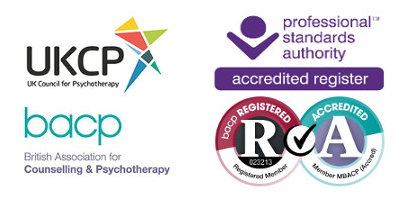Counselling for Abusive Relationships and Victims of Domestic Violence
No one starts relationships expecting them to turn abusive, but sadly some do. In therapy Marcus will:
- help you to see how the abuse is affecting you
- help you build your confidence
- support you to move forward.
Counselling for Abusive Relationships can provide a vital, safe space for you to unload your feelings, be heard without judgement, and take the time to think clearly about your situation, whatever the precise nature of the abuse you are suffering.
Domestic violence is unacceptable and illegal. Yet victims may endure it for years without telling anyone or seeking help.
Many victims of domestic abuse feel they are in some way to blame for the manner in which they are being treated. This way of thinking may be actively encouraged by the perpetrator and can be an intrinsic part of the abusive pattern of behaviour.
Are you a victim of domestic violence or abuse?
Most domestic violence is committed by men against women. One in four women are abused during their lifetime. However, domestic abuse also takes place where it is the woman who abuses their male partner as well as in same-sex relationships. Domestic abuse has no age limits and can occur in a relationship whatever the age of the partners, and regardless of class, religion or ethnic background.
Rather less well documented, but equally serious, are the problems of abuse between adult siblings, or of parents abusing adult children, or adult children abusing elderly parents.
Am I in an Abusive Relationship?
This section should help you recognise the signs of being in an abusive relationship and the different forms that domestic abuse can take.
Domestic abuse can be inflicted in many different ways, from the common forms of emotional or psychological abuse and physical violence, to more subtle forms of abuse such as intimidation, controlling behaviour, limiting a person’s social freedom or controlling their finances.
These are all actions calculated to reduce your autonomy and make you the servant of the abuser’s ego.
Symptoms of an emotionally abusive relationship
This type of abuse can erode your self-esteem and self-confidence and cut you off from the personal network whose support is crucial for you. For example:
Your partner:
- belittles you, your efforts and your achievements
- sulks till they get their own way or until you ‘submit’ or ‘confess’ that you are in the wrong
- convinces you that you bear responsibility for their actions (in reality, of course, they do)
- blames you for the entirety of the arguments and problems and make you feel you deserve abuse
- minimises the significance of the abuse by being dismissive about it
- drives you to think you are crazy, by denying that the abuse is occurring at all
- degrades or humiliates you
- manipulates you
- isolates you by cutting you off from your family, your friends and your support network
- makes exaggerated and unreasonable demands for your attention
Threats and intimidation as signs of an abusive relationship
Threats, menaces or intimidation can take away from you any sense of your independence and force you to submit to the abuser’s power and control. Examples could be that your partner:
- threatens to hurt you
- destroys objects that belong to you
- threatens to kill themselves, you, your children or give you reason to fear that they might
- intimidates you or stands over you so that you feel uncomfortable or intimidated
- swears at you
- invades your personal space
- overrides your boundaries by reading your emails, texts, diary, social media posts or mail
- harasses you
- follows you or stalks you (stalking as been described as ‘murder in slow motion’)
Signs of a physically abusive relationship
Physical abuse controls you, exhausts you, bewilders you and makes you increasingly vulnerable and unsafe. It can take many forms, your partner:
- slaps, punches or hits you
- pushes or shoves you
- pinches, pokes or grabs you
- bites or kicks you
- uses a weapon against you or so as to cause you alarm and fear
- burns a part of your body or your clothing or possessions
- holds you around the neck and/or chokes you, to hurt and control you and so that you fear strangling
- destroys, breaks or throws objects at you
- obstructs your path, holds you down, restrains you with force or locks you in
- directs violent actions not necessarily at you, but in your presence, so that you’re frightened
Signs of a sexually abusive relationship
This type of abuse can shame or humiliate you and reduce your sexual self-confidence and self-confidence generally. For example your partner:
- touches you in an inappropriate or unwanted way
- presses you with their sexual demands
- hurts you during sex
- pressurises you to have sex and sulk if they do not get sex
- has unsafe sex with you or with any other person
- does not inform you fully and promptly of any sexually transmitted infections they acquire
- assaults or rapes you i.e. have sex or sexual contact with you without your full, clear consent
Financial abuse as an indicator of an abusive relationship
This type of coercive abuse can render you powerless to make your own choices and decisions, e.g.:
- your partner controls all your finances
- makes you account for every penny you spend
- they make all the major financial decisions for you whether you wish that or not
Prioritising action for protection and safety
Victims of domestic abuse may need to leave the abusive person and/or bring charges against them if they have been physically or sexually violent.
This, however, may not be the best option in every case. There are other steps that can be explored, for example leaving temporarily, getting your partner to leave, or supporting your partner to get counselling.
You have an absolute right to live without fear of abuse. Once someone starts to use violence and abuse, it is likely to escalate and get worse, whatever the abuser says.
Changing your behaviour, as the abuser may be demanding, is unlikely to stop the abuse.
You may have become accustomed to feeling resigned, hopeless and overwhelmed by fear – fear of loneliness, fear of violence, fear of the unknown. That is why it can be important to speak to someone like a Domestic Abuse Therapist. Talking through your situation and the violence you are living with can help you to begin to make sense of your situation, enable you to look at your options and discuss your safety in a logical manner.
If you are a survivor of past domestic violence or of abuse within a relationship that has ended, you can often be helped in the process of moving on by discussing the experience in therapy and exploring what you have learned about yourself and your strength and resilience.
Counselling for Abusive Relationships and Domestic Violence
If you are a normal, kindhearted person with lots of love to give, it is natural to make excuses for the person who is hurting you, or to cling to a hope that their true (kind and loving) self will re-emerge. It can be extraordinarily hard to accept that:
- the abuser is solely responsible for their abusive behaviour and violent actions, and you are not to blame;
- violence and abuse are choices that the abuser makes, and it is not your fault.
As a relationship counsellor, Marcus understands and empathises with the dilemmas you face and will work supportively and walk alongside you as you get clear and figure out exactly what you need to do next.
Take the first step to stop the domestic abuse or to get out of an abusive relationship or to heal the emotional scars you feel you carry, and contact Marcus to talk about Counselling for Abusive Relationships.
Here are some interesting articles and pages on Abusive Relationships that you might find helpful
Counselling Resource
An article called “Love and Stockholm Syndrome: The Mystery of Loving an Abuser” on why we love those who abuse us and the complex relationship between the abuser and the abused … read more
The National Domestic Violence Hotline
An interesting article on Why Couples Counselling may not work in the situation of ‘Domestic Abuse’ … read more
Counselling Sydney
This page helps to explain how we have come to be in this adusive relationship and what we can do … read more



